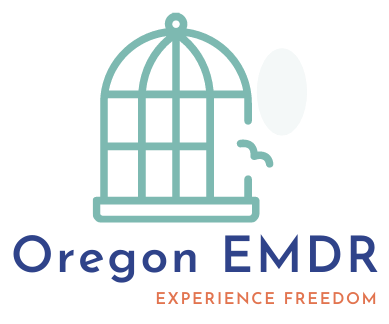
Available Therapy Services
Oregon EMDR specializes in experiential models of therapy.
Standard Therapy
55 minute weekly therapy sessions
Intensive Therapy
Comprehensive or single-issue treatment to achieve goals more rapidly

FOR ADULTS IN OREGON & ILLINOIS
Standard Therapy
Weekly or “standard” therapy sessions are typically 53- 55 minutes. Clients have the option to prepay for a “package” of 12 sessions, approximately 3 months of therapy, for a discounted rate.

FOR ADULTS IN OREGON & ILLINOIS
Intensive Therapy
Intensive Therapy consists of 2-5 hour therapy sessions that may be scheduled consecutively in 1 day (up to 2). Multiple sessions can be scheduled over the period of a week or long weekend to address a specific issue in a shorter amount of time. Alternatively, Intensive sessions can be scheduled 1-2 time per month. Due to the length of the sessions, there is room for significant shifts and opportunities to have several new or deepening experiences successively.
Please note hese sessions are not covered by insurance.
**Please note that Intensive Therapy Sessions are not appropriate for everyone and that a screening and assessment are required before scheduling Intensive sessions.

EXPERIENTIAL MODELS OF THERAPY
My Approach
“Healing and growth always involve discomfort.
But so does refusing to heal or grow. Paradoxically, this refusal always creates more pain—both for the person who refuses to grow and for the people around them. Here’s another paradox of emotional pain: the only way to ease it is to accept it, work with it, and use it as fuel for growth. Only by leaning into your pain can you move through it and out of it, and metabolize it.”
Menakem, R. (2022). The Quaking of America: An Embodied Guide to Navigating Our Nation's Upheaval and Racial Reckoning [Kindle Android version]
At Oregon EMDR, I specialize in experiential models of therapy which provide opportunities to find lasting healing from past trauma, as well as, other difficulties including anxious and depressive experiences, uncomfortable transitions, relationship struggles and other life challenges. While traditional “talk therapy” can be helpful and healing, it is not a service I provide.
-
What is EMDR therapy?
EMDR is a structured therapy that encourages the patient to focus briefly on the trauma memory while simultaneously experiencing bilateral stimulation (typically eye movements), which is associated with a reduction in the vividness and emotion associated with the trauma memories. Eye Movement Desensitization and Reprocessing (EMDR) therapy is an extensively researched, effective psychotherapy method proven to help people recover from trauma and PTSD symptoms. Ongoing research supports positive clinical outcomes showing EMDR therapy as a helpful treatment for disorders such as anxiety, depression, … and other distressing life experiences (Maxfield, 2019). EMDR therapy has even been superior to Prozac in trauma treatment (Van der Kolk et al., 2007). Shapiro and Forrest (2016) share that more than 7 million people have been treated successfully by 110,000 therapists in 130 countries since 2016.
The American Psychiatric Association, the American Psychological Association, the International Society for Traumatic Stress Studies, the National Alliance on Mental Illness, the Substance Abuse and Mental Health Services Administration, the U.K. National Institute for Health and Care Excellence, the U.S. Dept. of Veterans Affairs/Dept. of Defense, The Cochrane Database of Systematic Reviews, and the World Health Organization among many other national and international organizations recognize EMDR therapy as an effective treatment. More specific information on treatment guidelines can be found on our EMDR Treatment Guidelines page.
References
Maxfield, L. (2019). A clinician’s guide to the efficacy of EMDR therapy. Journal of EMDR Practice and Research [Editorial], 13(4), 239-246. Open access: http://dx.doi.org/10.1891/1933-3196.13.4.239
Shapiro, F., & Forrest, M. S. (2016). EMDR: The breakthrough therapy for overcoming anxiety, stress, and trauma. Hachette UK
Van der Kolk, B.A., Spinazzola, J., Blaustein, M.E., Hopper, J.W., Hopper, E.K., Korn, D. L., & Simpson, W.B. (2007). A randomized clinical trial of eye movement desensitization and reprocessing (EMDR), fluoxetine, and pill placebo in the treatment of posttraumatic stress disorder: treatment effects and long-term maintenance. Journal of Clinical Psychiatry, 68(1), 37-46.
Source: emdria.org
-
What is Sensorimotor Psychotherapy?
Sensorimotor Psychotherapy (SP) is a therapeutic modality for trauma and attachment issues. SP welcomes the body as an integral source of information which can guide resourcing and the accessing and processing of challenging, traumatic, and developmental experience. SP is a holistic approach that includes somatic, emotional, and cognitive processing and integration.
SP enables clients to discover and change habitual physical and psychological patterns that impede optimal functioning and well-being. SP is helpful in working with dysregulated activation and other effects of trauma, as well as the limiting belief systems of developmental issues.
SP helps clients cultivate their strengths, while providing enough challenge to stimulate growth, long lasting change, and well-being.
Several research studies to gather data on the effectiveness of SP are underway or in the process of publication at the following institutions:
Maudsley Hospital (London, UK)
Womens’ College Hospital (Toronto, Ontario)
Modum Bad Outpatient Clinic (Oslo, Norway)
Source: sensorimotorpsychotherapy.org
-
Deep Brain Reorienting (DBR) aims to access the core of the traumatic experience in a way which tracks the original physiological sequence in the brainstem, the part of the brain which is rapidly online in situations of danger or attachment disruption. There may be threat and attachment wounding together when, for example, an experience of abandonment in infancy activates age-appropriate fears for survival.
Source: deepbrainreorienting.com




